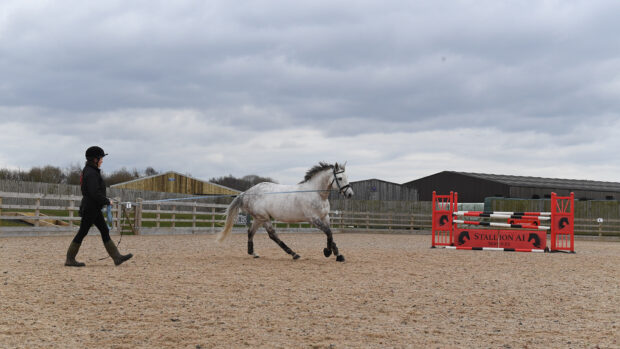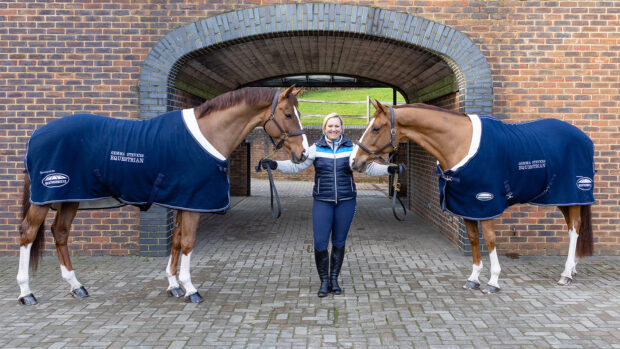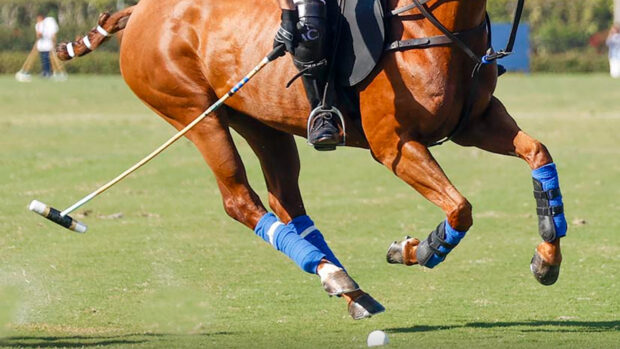Professor William (Twink) Allen, of Newmarket’s Equine Fertility Unit, has received approval from the Home Office to clone horses for research purposes. The permission has been granted subject to regular progress reports being provided to the Home Office, including details of any animal welfare costs it may entail. The government has specifically forbidden any cloning of sport horses for commercial reasons.
Allen, who is the father-in-law of champion jockey Frankie Dettori, had applied to the Home Office to include cloning in his project licence in 2001, but his request was turned down last year amid controversy that the government was giving in to pressure from animal rights groups. He appealed against the ban and has now been given the green light. Although his application has been approved in principle, he will still have to get a licence to take his experiments forward.
The professor and his team have long been pioneers of equine genetic research in Britain and abroad. They engineered the test-tube birth of two foals in Newmarket in 2001. A year later, an implantation technique they developed allowed a horse to give birth to a donkey at Monarsh University, in Australia.
Implantation also lies at the root of the cloning experiments Allen wants to conduct in Britain. The professor intends to apply to horses the same nuclear transfer technique followed by the Roslin Institute in 1996 to create Dolly the sheep. In nuclear transfer experiments, an oocyte — the unfertilised egg of an animal — is hollowed out and replaced with the nucleus of the donor animal, which is to be cloned. An electrical impulse stimulates the development of an embryo. The cloned embryo is then implanted in a recipient womb, which carries the pregnancy to term.
Allen’s research is geared to discovering the relative importance of genetic composition and womb environment in the development of equine foetuses by implanting identical embryos in mares of different breeds and ages, and studying their behaviour. But the Newmarket professor also plans to place the cloned embryo into the womb of its genetic donor — effectively implanting the clone into itself — to study immunological reactions in pregnant mares. A third strand of experiments will test what happens when putting a donkey nucleus into a horse oocyte and viceversa.
Allen had also made a case to clone embryos to produce high performing sport horses. In his application, he pointed out that it is difficult to breed dressage, show jumping, eventing, endurance and carriage driving horses, and polo ponies, because many star performers are geldings.
Cloning, he argues, would allow scientists to reproduce genetically identical copies of top sport horses. And while he recognises that womb environment, birth conditions, and upbringing and training schedules would all have an impact on competitive performance, this technique would allow him to boost genetic excellence.
“One animal species [cloning] can be very useful for is the horse to get past the problem of geldings,” he says. “It won’t recreate a champion horse because other factors intervene, but it can reproduce its testicles.”
There are currently four equine cloned pregnancies currently underway abroad using the genetic material of champion geldings. However, the Home Office turned down his request for commercial sport horse cloning, on the grounds that similar results can be achieved by innovative breeding programmes along the lines of those adopted on Continental Europe, and that, in any case, the inefficiency linked to cloning and the uncertainty over how much of a horse’s performance depends on its genetic makeup make this kind of experiments unlikely to succeed.
Allen was disappointed at this restriction. He believes it is “absurd” to think that Britain could introduce the breeding methods used in France and Germany, and points out that equine cloning does not have the same degree of inefficiency as other species. “The incidence of abnormality is very low compared to sheep or cattle because of different placentation,” he says.
“The gelding problem is a great problem to breeding. Here is a technique to overcome it but the government will not let us do it because it panders to a few protesters. This is typically British. This country has a reputation for not exploiting the techniques it develops. Anyway, [getting permission for experimental cloning] is a chink in the armour, it’s a moral victory, although it is slightly pyrrhic, as we watch France do it [commercially].”
However, Timothy Corner QC, who advised the government on the matter, didn’t rule out commercial cloning forever and wrote in his report that “if in the future there is produced either evidence of greater benefits [of cloning] than I have identified, or evidence that the costs are less, then a different view might be taken.”


